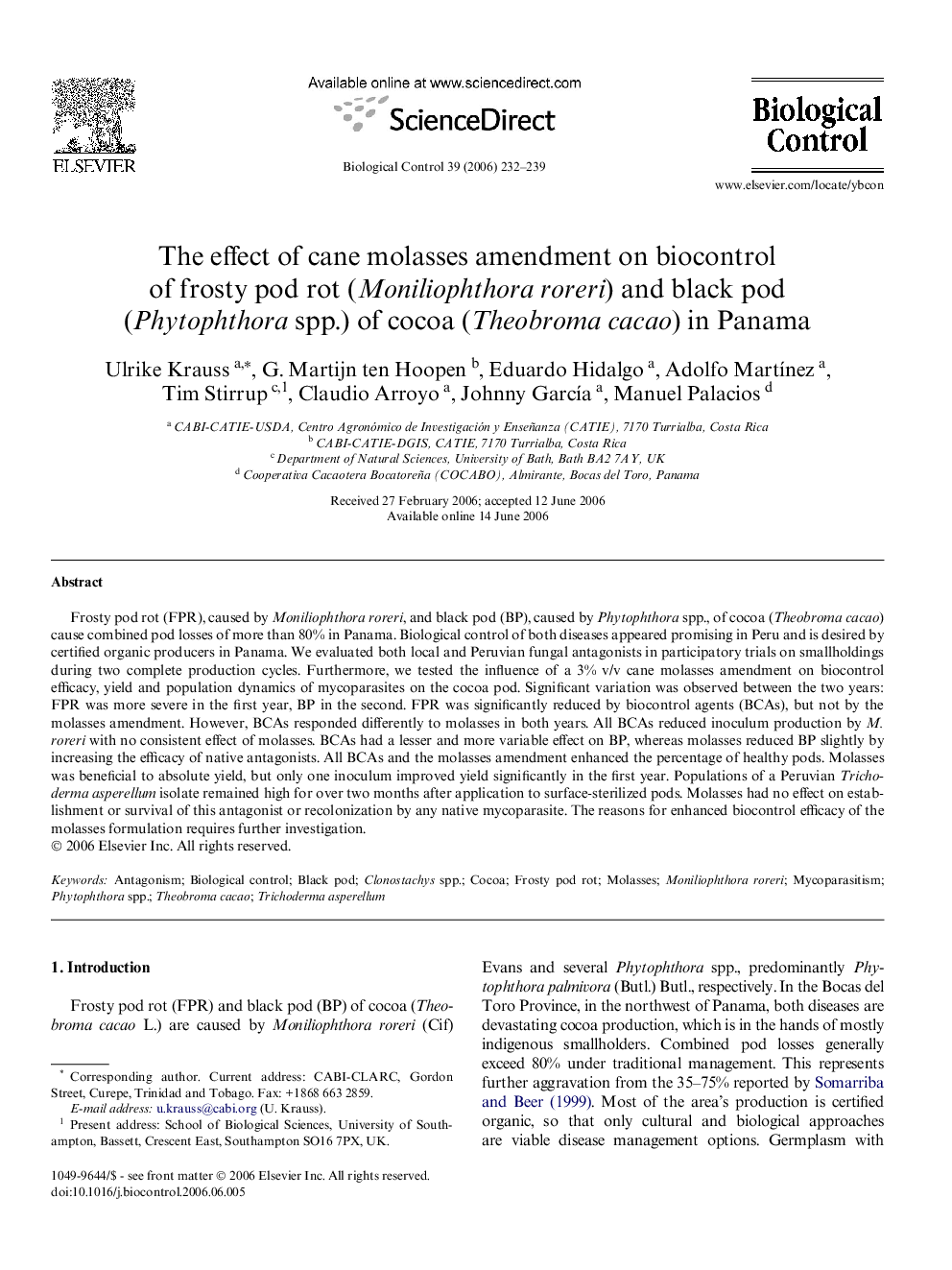| Article ID | Journal | Published Year | Pages | File Type |
|---|---|---|---|---|
| 4505262 | Biological Control | 2006 | 8 Pages |
Abstract
Frosty pod rot (FPR), caused by Moniliophthora roreri, and black pod (BP), caused by Phytophthora spp., of cocoa (Theobroma cacao) cause combined pod losses of more than 80% in Panama. Biological control of both diseases appeared promising in Peru and is desired by certified organic producers in Panama. We evaluated both local and Peruvian fungal antagonists in participatory trials on smallholdings during two complete production cycles. Furthermore, we tested the influence of a 3% v/v cane molasses amendment on biocontrol efficacy, yield and population dynamics of mycoparasites on the cocoa pod. Significant variation was observed between the two years: FPR was more severe in the first year, BP in the second. FPR was significantly reduced by biocontrol agents (BCAs), but not by the molasses amendment. However, BCAs responded differently to molasses in both years. All BCAs reduced inoculum production by M. roreri with no consistent effect of molasses. BCAs had a lesser and more variable effect on BP, whereas molasses reduced BP slightly by increasing the efficacy of native antagonists. All BCAs and the molasses amendment enhanced the percentage of healthy pods. Molasses was beneficial to absolute yield, but only one inoculum improved yield significantly in the first year. Populations of a Peruvian Trichoderma asperellum isolate remained high for over two months after application to surface-sterilized pods. Molasses had no effect on establishment or survival of this antagonist or recolonization by any native mycoparasite. The reasons for enhanced biocontrol efficacy of the molasses formulation requires further investigation.
Keywords
Related Topics
Life Sciences
Agricultural and Biological Sciences
Agronomy and Crop Science
Authors
Ulrike Krauss, G. Martijn ten Hoopen, Eduardo Hidalgo, Adolfo MartÃnez, Tim Stirrup, Claudio Arroyo, Johnny GarcÃa, Manuel Palacios,
